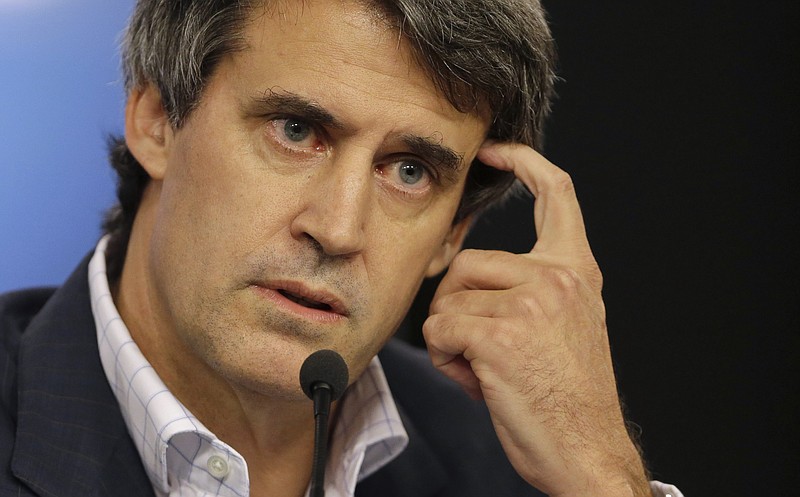BUENOS AIRES, Argentina (AP) - Argentina's currency sharply devalued against the U.S. dollar on Thursday as the new administration lifted deeply unpopular limits on the buying of foreign currencies, a major change that will expose Latin America's third largest economy to international market forces in ways not seen in over a decade.
The devaluation, widely expected by economists and even frequently hinted at by new President Mauricio Marci, could exacerbate already soaring prices and spook Argentines, who fear big changes to an economy that has suffered through periodic financial meltdowns.
Minutes after exchange houses and banks opened Thursday, the peso initially traded at around 15 to one U.S. dollar before dropping to 14.30.
That represents a nearly 60 percent drop in value compared to the rate of nine pesos to the dollar fixed by the government over the last year.
The change was put in motion Wednesday night, when Finance Minister Alfonso Prat-Gay announced there would no longer be restrictions on buying foreign currencies. Macri had campaigned on promises to lift the restrictions, saying they hurt businesses at home and scared away would-be international investors.
Attempting to stop capital flight, the preceding administration of President Cristina Fernandez instituted the restrictions on buying foreign currency in 2011. Locally called a "cepo," or "clamp," the restrictions were one of many protectionist policies instituted during 12 years of governments led by Fernandez and her late husband and predecessor as president, Nestor Kirchner.
People who wanted to buy dollars, a common practice in a South American country with a long history of financial collapses, had to meet several requirements. And most were limited to a few hundred dollars a month - when U.S. currency was available in banks.
Businesses, especially those needing to deal in dollars, were deeply affected. While the Fernandez administration insisted that dollars coming into the country trade at the official rate, getting dollars out at that rate, if at all, proved difficult.
The result was an often baffling system of multiple official exchange rates. Industries from textiles to agriculture to commercial banks all had different rates, and businesses as well as individuals often traded in illegal exchange houses that were an open secret.
"The cepo was the worst possible thing the last government could have done," said Daniel Romano, a 57-year-old doctor who stopped by a bank in Buenos Aires to check the rate. "Sure, there is a devaluation today. But this had already been happening for years."
Indeed, in early trading Thursday, the official exchange rate seemed to be hovering around the recent black market rate, which over the last year had risen to as much as 16 pesos to the dollar.
The biggest fear is that the devaluation will add to inflation already estimated at around 30 percent. Between the time Macri was elected on Nov. 22 and his inauguration last week, many businesses jacked up prices in hopes of protecting themselves against any devaluation. Other businesses, such as factories and construction companies, simply shut down the last couple weeks to see what happens to the peso.
There are concerns the lifting of currency rules could lead to a run on banks by Argentines eager to buy dollars. The nation's foreign reserves are just over $24 billion, a small amount for an estimated $600 billion economy. However, as of noon Thursday, there was no indication that throngs were rushing to the banks, a sign that many are likely waiting to see what happens.
"This is going to complicate everything" in the economy, said Claudia Arrebelo, a 45-year-old pharmacist who dropped by a bank to check the rate. "For me, all it means is that I'll now buy dollars at the black market rate that is now the official rate."
Without providing any details Wednesday, Prat-Gray, the finance minister, said that to insulate against the risk of depleting reserves, his team had been negotiating with China and several financial institutions to quickly bring in several billion dollars over the next month.
___
Peter Prengaman on Twitter: http://twitter.com/peterprengaman . His stories can be found at: http://bigstory.ap.org/search/site/Peter%20Prengaman
